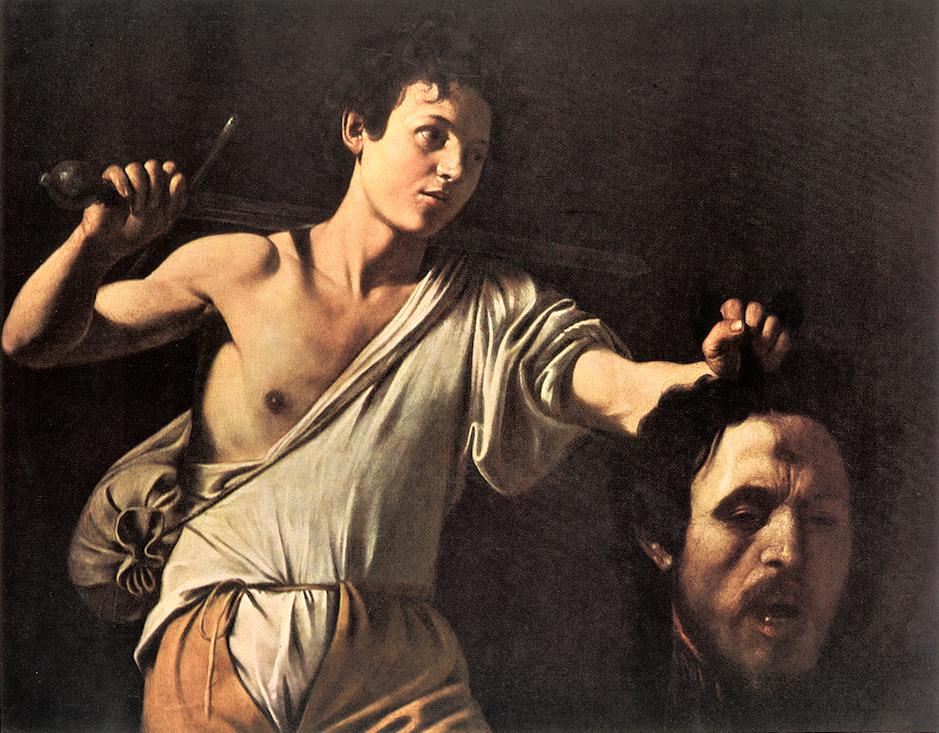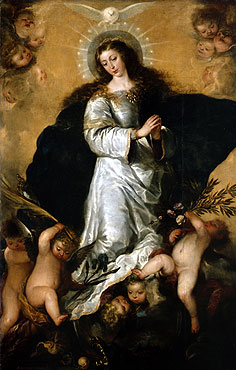The care of the home us not unlike the care of the soul in
relationship to the body. The soul
houses the body, but the soul is hidden.
It is interior life. As such, the
interior life of the home must be kept in order for the exterior to be well,
just as with the human person. If the
home is to be where the kingdom of God dwells, then God’s kingdom should be
clean, kept, and well represented. For
just as in the care of the human soul, when one cares for his or her soul, he
cares for the body just as much and when he cares for the body, he cares for
the soul. For as St. Bonaventure states,
“The soul is not a person, but the soul is joined to the body- is a person”
1. The neglect of the soul is neglect of
the body and vice/versa. St. Chrysostom
states, “For not to the soul alone are the pleasures hurtful, but to the body
itself, because from being a strong body it becomes weak, from being healthy,
diseased, from being active, slothful, from being beautiful, unshapely, and
from youthful, old.” 2.
So, no one wants a home that is sick weak, unshapely, and
diseased. For it can be said that to
care for the home itself is to care for the interior life of the home: the life
lived daily. In life, however, there are
those who take good care of the body but neglect the soul and also in
reverse. We have all seen the obese nun
or priest! Both must be considered in
order to be well. As Bl. John Paul II
the Great states, “ The home is a great good for man! It is a place of life and love! It is in a certain sense, our human Lareto…”3. Because the home is this great good it must
be regarded with great good. Much in the
way of formation of spouses and children depend on the proper care of the
home. Proper care of this place of “Life
and Love”. Proper care can lead to the
desired outcome of heavenly virtue in a more complete way. We have all experienced trials with and in
the home, but the home is where the seedbed is laid for the souls of childhood
to flourish. “The home, though it suffer
want and hardship in this valley of tears, may become for the children in its
own way a foretaste of that paradise of delight in which the creator placed the
first men of the human race.” 4.
So, how then to care for this place which is so crucial to
the formation of the Christian man and his Kin and kith? There are a number of aspects to which our
care should be directed, but I will outline them here first and explain each
one in more detail in successive articles:
1) Cleanliness inside and out
2) Structure
3) Infrastructure
4) Maintenance- corrective and preventive
5) Adornment and decorum
1) Cleanliness inside and out
2) Structure
3) Infrastructure
4) Maintenance- corrective and preventive
5) Adornment and decorum
Today I will begin with #1 and will proceed in weeks ahead
with the others.
Cleanliness Inside
and Out
We are right to know that the liturgical life of the church
must be carried out over and into the home and lived everyday within the
home. For as Bl. John Paul II the Great
states, “What happens in the liturgy must be carried over into daily life. It must be lived in the home. Then the home will become the place where
life in Christ grows to maturity. Such a
home is a real expression of the Church” 5.
But what I think is often forgotten is the external expression of this truth. Which, is curious since we as Catholics and religious people live by outward expression of our faith; i.e. sign of the cross, genuflection, kneeling, Ad Orientem, etc. The liturgy is ordered- it carries with it a modus which says “a place for everything and everything in its place”. It must be clean and ready to be a worthy presentation to and for the Lord and his people who come to worship him there. If there is chaos and disorder, then the God of order (look to the universe!) is slighted. Further, there is real symbolism to the placement, positioning, and well keeping of all vessels, art, statues, and items of worship. Liturgical life lived in the home must also branch into its presentation to its people.
We must turn our home (its cleanliness) toward the Lord- “Ad Orientem” as it’s said- liturgically “East”. I must face all aspects to Him and order them to the “Cult” so to speak, of the home. The Culture of a home must be cultivated in order to serve him well, just as it is in the Church. “Man comes to a true and full humanity only through culture- that is through the cultivation of the goods and values of nature” 6. Just as a farmer must cultivate his land so that it may bear fruit, so too the home will not bear fruit unless it is “kept” and cultivated. There is a reason why culture and cultivation find a common root in the Latin word “Cultus”. It means “Labor, care, husbandry, discipline, care, way of life, refinement, honoring, reverence, adoration, veneration”. 7. If the home is a place of worship to Christ through the everyday Catholic living of life, the domestic church, the home itself must adore Christ. This is what you find in the traditionally adorned churches which are spaces made to lead man to worship God. The current state of church architecture is abysmal and does more harm than good to man’s understanding of worship and the cosmic reality in which the Liturgy finds itself, as so clearly laid out by Pope Benedict XVI in “The Spirit of the Liturgy”. The outward expression is a manifestation of the unseen inward reality. When done properly, it can lead man to a more full expression of worship and entering into God’s eternal mystery.
But what I think is often forgotten is the external expression of this truth. Which, is curious since we as Catholics and religious people live by outward expression of our faith; i.e. sign of the cross, genuflection, kneeling, Ad Orientem, etc. The liturgy is ordered- it carries with it a modus which says “a place for everything and everything in its place”. It must be clean and ready to be a worthy presentation to and for the Lord and his people who come to worship him there. If there is chaos and disorder, then the God of order (look to the universe!) is slighted. Further, there is real symbolism to the placement, positioning, and well keeping of all vessels, art, statues, and items of worship. Liturgical life lived in the home must also branch into its presentation to its people.
We must turn our home (its cleanliness) toward the Lord- “Ad Orientem” as it’s said- liturgically “East”. I must face all aspects to Him and order them to the “Cult” so to speak, of the home. The Culture of a home must be cultivated in order to serve him well, just as it is in the Church. “Man comes to a true and full humanity only through culture- that is through the cultivation of the goods and values of nature” 6. Just as a farmer must cultivate his land so that it may bear fruit, so too the home will not bear fruit unless it is “kept” and cultivated. There is a reason why culture and cultivation find a common root in the Latin word “Cultus”. It means “Labor, care, husbandry, discipline, care, way of life, refinement, honoring, reverence, adoration, veneration”. 7. If the home is a place of worship to Christ through the everyday Catholic living of life, the domestic church, the home itself must adore Christ. This is what you find in the traditionally adorned churches which are spaces made to lead man to worship God. The current state of church architecture is abysmal and does more harm than good to man’s understanding of worship and the cosmic reality in which the Liturgy finds itself, as so clearly laid out by Pope Benedict XVI in “The Spirit of the Liturgy”. The outward expression is a manifestation of the unseen inward reality. When done properly, it can lead man to a more full expression of worship and entering into God’s eternal mystery.
All through the scriptures, that which is “ugly” is usually depicted as an outward expression of an inward sin or wretchedness. 8. An unkempt home is just plain “ugly”. It is poor to the eye and displays a form of wretchedness. I once heard a protestant woman speaker talking about how great she feels when she goes over to a friend’s house and sees it in a messy state. She said it relieves her that someone who she admires as a Christian has either a messier home than hers or just as messy. She referred to it as the “ministry of mediocrity”! What an oxymoron…what Christian should ever aspire to mediocrity? What ministry is there to be found in mediocrity? The words of Bl. John Paul II the Great echo again when he said “Do Not Be Afraid! Do not be satisfied with mediocrity”. Mediocrity is nothing more than acceptance of that which is effortless and sub-par. A common and consistent blandness and satisfaction with the banal. This is truly dreary! The ministry that woman should have participated in was that of charity. To reach out to that friend and offer to help her in her obvious work waiting for her could have edified and uplifted that woman!
To be sure, a home is also useful and is not a museum. It should be lived in and should serve us- not the other way around. So what balance is there then? Think again to the liturgy. During the liturgy, much is used and brought out- at times even to the fullest extent. In Solemnities more is brought out than usual. But in all instances, all is put back and made ready to be used for next time. The dignity of the space and the liturgy is kept in this way and regard. Dignity would lack if the finest of all items in the sacristy were not used, especially and good and useful things. On the flip side, if they are not taken care of, the dignity owed to the space and items is diminished.
To conclude, care ought to be taken to use a home well, but
keep it too so that its dignity is maintained and it serves the liturgical life
and aspect well. It ought to be
vacuumed, dusted, organized, free from pests, picked up, useful, and not
restrictive or pent up. When a home is
warm when it should be warm, and cool when it should be cool, and when a home
is washed and put together, it is an outward expression to all of an inward,
hidden, reality. Life!
FOOTNOTES:
1) St. Bonaventure, De Assumptione B Mariae Virginis, Sermo. 1.
2) Catena Aurea- Commentary on Luke 12, St. John
Chrysostom
3) Bl. John Paul II The Great- Adress to University
of Rome, Dec. 12, 1995
4) Pope Pius XI- Casti Connubii- preparation for marriage
5) Bl John Paul II The Great- Homily given to
Pontifical Athenaeum, Feb. 10, 1986
6) Gaudium et Spes, Part II, Chptr. II
7) Lewis and Short Latin Dictionary
8) Rev. 16,2. Sirach 20, 24. Gen. 41, 3&4









